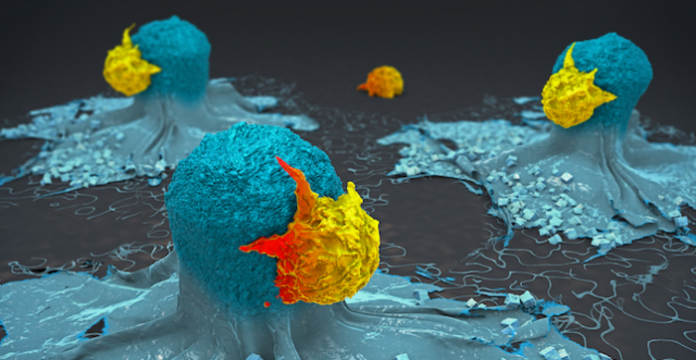
A recent study from the Johns Hopkins Kimmel Cancer Center, published in the Journal of Clinical Investigation, has uncovered distinct immune “signatures” that could help identify cancer patients at higher risk for developing serious side effects from immunotherapy. By analyzing immune responses in patients treated with immune checkpoint inhibitors, researchers hope to predict and prevent adverse events that can lead to lasting health complications or even death.
Immune checkpoint inhibitors are designed to boost the body’s natural defenses against cancer, but a significant subset of patients experience immune-related adverse events (irAEs), which can range from mild to life-threatening. Approximately 40% of the 111 patients studied developed irAEs, particularly those who received combination therapies or had a history of autoimmune disease.
The team, led by Mark Yarchoan, MD, and Won Jin Ho, MD, found that certain immune cell populations and cytokines were elevated in patients before the onset of adverse events, indicating early warning signals.
“Increases in white blood cells known as T-cell helper 2 (Th2) and T-cell helper 17 (Th17), and their respective cytokines, predate the development of immune-related adverse events and are potential targets for treating immune-related adverse events,” said Dr. Yarchoan, senior author of the study and associate professor of oncology. Notably, the researchers found that levels of the cytokine interleukin-6 (IL-6) were a strong predictor of which patients would develop severe irAEs. Higher IL-6 levels were also associated with poorer cancer treatment outcomes.
The researchers followed patients for an average of eight years, collecting blood samples to track cytokine levels and immune cell populations before and during treatment. They observed that patients with elevated Th2 and Th17 cell populations, along with increased IL-6, were more likely to experience grade 2 or higher irAEs. “IL-6 appeared to be a two-for-one,” noted Ho, co-senior author and director of the Mass Cytometry Facility. “It may play a dual role in cancer progression and promoting immune adverse events. Our data strongly support the use of IL-6 inhibitors to treat immune-adverse events and prevent them.”
In response to these findings, Aliyah Pabani, MD, co-director of the Immune-Related Toxicity Team at Johns Hopkins, has launched a clinical trial to determine if IL-6 inhibitors can prevent adverse effects in patients who have previously experienced irAEs and need to restart immunotherapy.
“This is a beautiful example of the Kimmel Cancer Center team’s bench-to-bedside approach,” Pabani explained. “We are wasting no time as we work to translate the team’s discoveries into improved therapies to help our patients.”
The study also highlights the need for targeted monitoring in patients undergoing immunotherapy, especially for those with a history of autoimmune disorders. The team plans to recruit 500 additional patients to validate their findings and to investigate specific cytokine profiles linked to different irAEs. By understanding which immune signatures are associated with various adverse effects—such as the cytokines driving arthritis versus those causing liver inflammation—oncologists could develop more personalized treatment plans.





